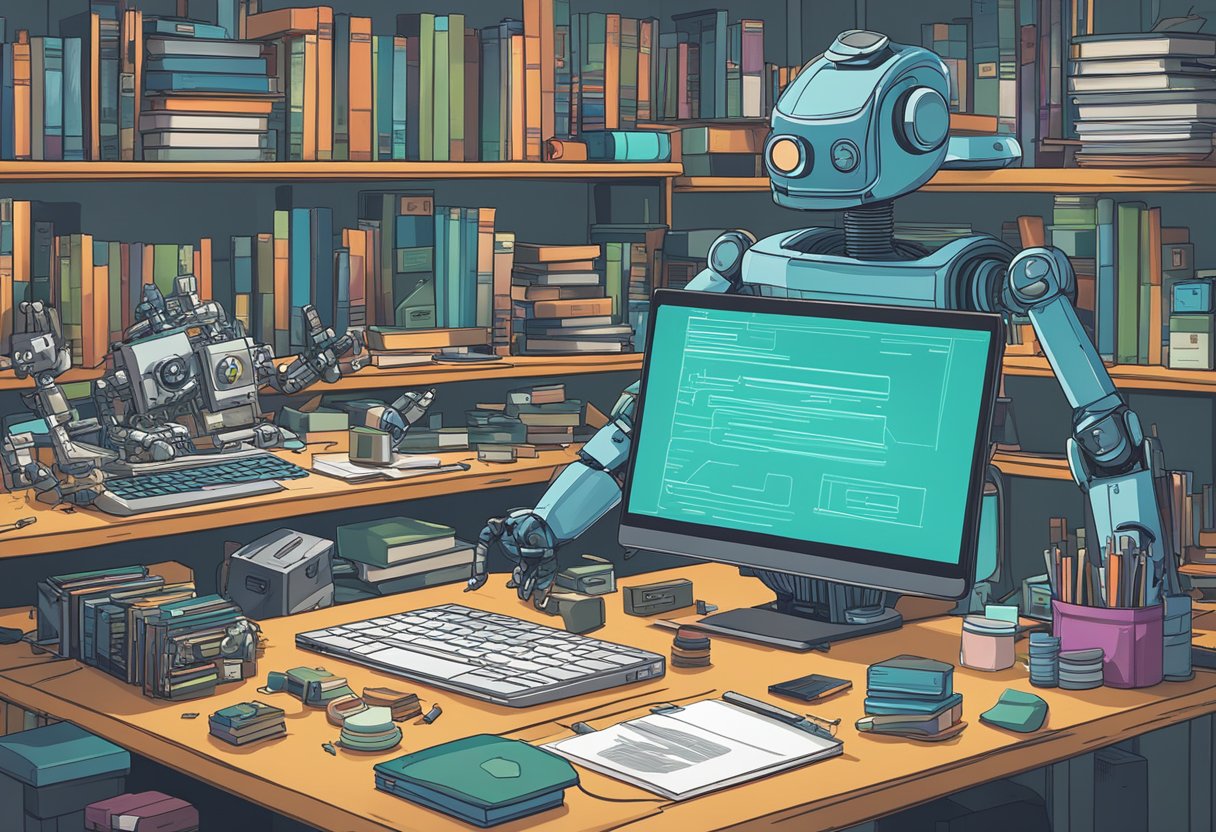Artificial Intelligence (AI) is often seen as a complex field, reserved for experts with deep programming knowledge and access to cutting-edge technology. However, the landscape of AI is changing, making it more accessible for enthusiasts and beginners who want to experiment with AI from the comfort of their homes. Engaging in simple AI projects can be a fun and enlightening way to get hands-on experience with the technology that is shaping the future.
By starting small, you can gradually build a portfolio of projects that showcase your growing skills. Whether you’re curious about how AI can be applied in everyday life, or you’re looking to lay foundational knowledge for a career in AI, diving into practical home-based projects is an excellent starting point. From creating smart home applications to programming simple learning algorithms, the possibilities are endless for those willing to explore the world of AI through real-world application.
Key Takeaways
- Engaging in AI projects at home is approachable, even for beginners.
- Starting with small projects can help build a solid AI skills portfolio.
- Practical experience with AI can lead to professional opportunities in the field.
Starting with AI Basics
Embarking on AI projects at home begins by wrapping one’s head around key concepts in artificial intelligence (AI), machine learning (ML), and deep learning. Right tools and programming languages are also essential to bring these projects to life.
Understanding AI, ML, and Deep Learning
Artificial intelligence is the overarching domain where machines simulate human intelligence. Machine learning falls under AI and focuses on giving machines the ability to learn and make decisions from data using algorithms. Deep learning, a subset of ML, involves neural networks—structures inspired by the human brain—that deal with high-level complexities.
- AI: Systems simulate human intelligence, make predictions, and solve problems.
- Machine learning: Models learn from data without explicit programming.
- Deep Learning: Neural networks like convolutional neural networks handle complex tasks like image and speech recognition.
AI relies on varying learning methods:
- Supervised learning: Models trained on labeled data.
- Unsupervised learning: Models find patterns in unlabeled data.
Programming Languages and Tools
Selection of the right programming language and tools is pivotal for AI development. Python is often the go-to language because of its simplicity and the extensive availability of AI libraries like TensorFlow, PyTorch, NLTK, and spaCy. Python excels in handling various AI tasks, from natural language processing to computer vision with OpenCV.
- R is preferred for statistical analysis and data visualization.
- Java offers a robust platform, useful for building large-scale, high-performance AI applications.
Halting at programming languages alone won’t cut it. One must familiarize with AI and ML libraries’:
- TensorFlow: Ideal for numerical computation and machine learning.
- PyTorch: Known for ease of use and flexibility in deep learning models.
- NLTK/spaCy: Both are great for processing and understanding human language.
armed with these basics, enthusiasts can dive into AI projects, bringing computational intelligence right into the comfort of their homes.
Practical AI Projects for Home
Diving into AI at home isn’t just for tech enthusiasts; it’s accessible for anyone with a basic grasp of Python programming. Here are some hands-on projects that cover key areas like chatbots, object recognition, and natural language processing, designed to give aspiring developers a taste of what AI has to offer.
Chatbots and Virtual Assistants
One can begin by creating chatbots using Python—Turing test contenders not required. Libraries such as TensorFlow and PyTorch are at one’s disposal to power conversational agents. Starting with simple Q&A scripts, one can progress to more complex virtual assistants like Siri or Alexa, equipped to control smart home devices.
Image and Object Recognition Tasks
Next, exploring computer vision can lead to projects such as image classification or face recognition using libraries like OpenCV. Beginners can try their hand at handwritten digit recognition, which is a classic starting point in deep learning. Resources and datasets for these tasks are readily available and a simple model can be built with a few layers of neural networks, gradually increasing complexity as one’s skills improve.
Natural Language Processing Applications
Lastly, Natural Language Processing (NLP) is at the heart of text-based AI applications. Beginners may focus on projects like sentiment analysis to gauge public opinion or spam detection to filter emails. More advanced projects could include text generation or building a spam email classifier. Starting with Python’s NLP libraries such as NLTK or SpaCy, one will get a solid foundation that’s applicable to real-world scenarios.
Engaging in these projects offers a practical gateway to the world of AI straight from one’s living room, paving the way for more sophisticated applications.
Expanding Your AI Knowledge
Venturing into the domain of artificial intelligence (AI) at home can be both thrilling and educational. To truly enhance one’s grasp on the subject, it involves diving into practical experiences that solidify the understanding of machine learning algorithms and deep learning models.
Participate in Online Challenges
For those keen on sharpening their AI skills, one of the best ways is to participate in online challenges. Platforms like Kaggle provide a plethora of data science competitions, where one can test and improve their machine learning prowess. These contests often involve real-world problems, ranging from predictive modeling to collaborative filtering for recommendation systems. Engaging in these challenges not only bolsters understanding but also exposes one to a community of AI enthusiasts and professionals.
Building Your AI Project Portfolio
Creating a portfolio of AI projects is pivotal for anyone looking to showcase their capabilities. Practical application of deep learning models on platforms like GitHub highlights one’s hands-on experience and technical skill set. For example, one might design a small project that employs deep learning to recognize objects in images or develop a recommendation system based on user preferences. Educational sites such as Udacity offer guided projects that can also contribute to one’s portfolio, offering structured learning paths through AI and machine learning algorithms. Building and sharing multiple projects demonstrate an active commitment to learning and applying AI technologies.
Landing a Career in AI
Exploring a career in AI isn’t just for tech whizzes—anyone with a passion for technology and problem-solving can give it a shot. To get started, one might dabble in machine learning or dive into deep learning projects at home. It’s like piecing together a complex puzzle; bit by bit, they develop a keen understanding of how algorithms can mimic human thought.
Becoming an AI engineer calls for a mix of skills. They’ll need to be comfortable with coding, of course, but also have a keen eye for how AI can solve real-world problems. Here’s a breakdown of some key areas they should focus on:
- Machine Learning: This is the bread and butter of AI jobs. They’ll want to get cozy with algorithms and data models that enable computers to learn without direct instructions.
- Deep Learning: Think of this as machine learning’s intense cousin. It revolves around neural networks that can recognize patterns and make decisions, mimicking the workings of the human brain.
- Natural Language Processing (NLP): If they’re into the way we communicate, NLP is about helping computers understand and interpret human languages.
- Computer Vision: Got an eye for imagery? Computer vision is all about training machines to interpret and understand the visual world.
Here’s a quick checklist they can use:
- ✅ Learn the basics of coding (Python is a hot pick!).
- ✅ Build simple AI projects (chatbots, image classifiers, etc.).
- ✅ Stay curious and keep learning (online courses, webinars, and workshops can help).
- ✅ Network with AI professionals (LinkedIn, meetups, and conferences are great for this).
They don’t need to be a genius to land a career in AI. Starting with small projects at home can open doors to various opportunities in AI jobs ranging from tech companies to innovative startups. Just buckle down, stay persistent, and watch as the AI puzzles start to make more sense.


